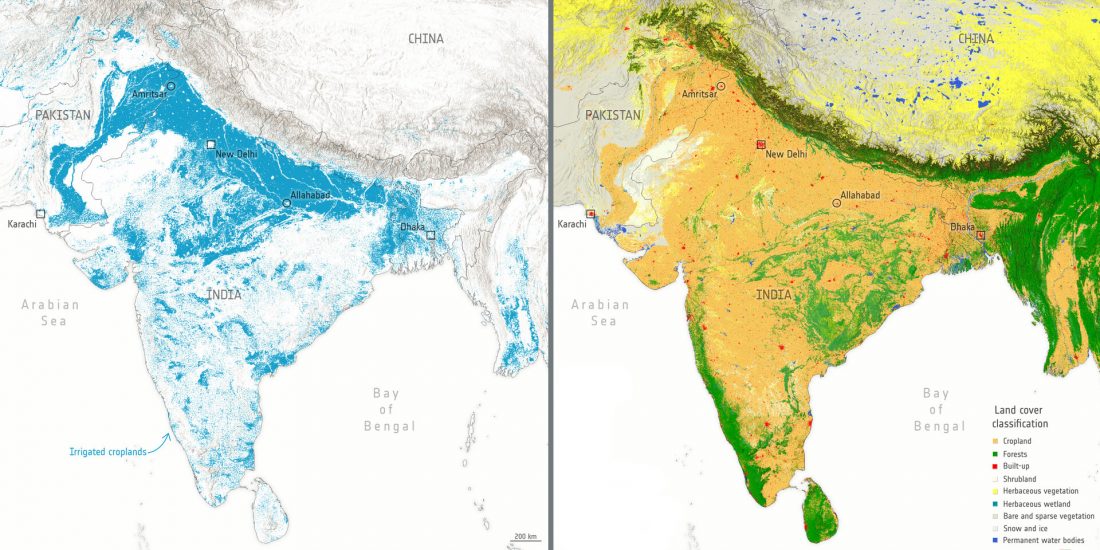Irrigation has a wide impact on our planet, with over 70% of freshwater globally used for crop cultivation.
While essential for food production, irrigation has impact at local level: it can deplete water reserves, leading to local subsidence, saltwater intrusion, and potential biodiversity alterations.
Recently, an international team of scientists, supported by ESA’s Science for Society Irrigation+ project, published their research outcomes in Nature Reviews Earth & Environment, shedding light on the complex interplay between irrigation and the global environment. This study reveals how irrigation influences surface energy balance, biogeochemical cycles, and might even affect weather patterns, potentially intensifying droughts or causing unexpected shifts in precipitation. As we grapple with climate change’s challenges, understanding the implications of irrigation is crucial.
Read the full story on ESA EO pages.
Featured image: Irrigated areas in India and corresponding land-cover classification map.

